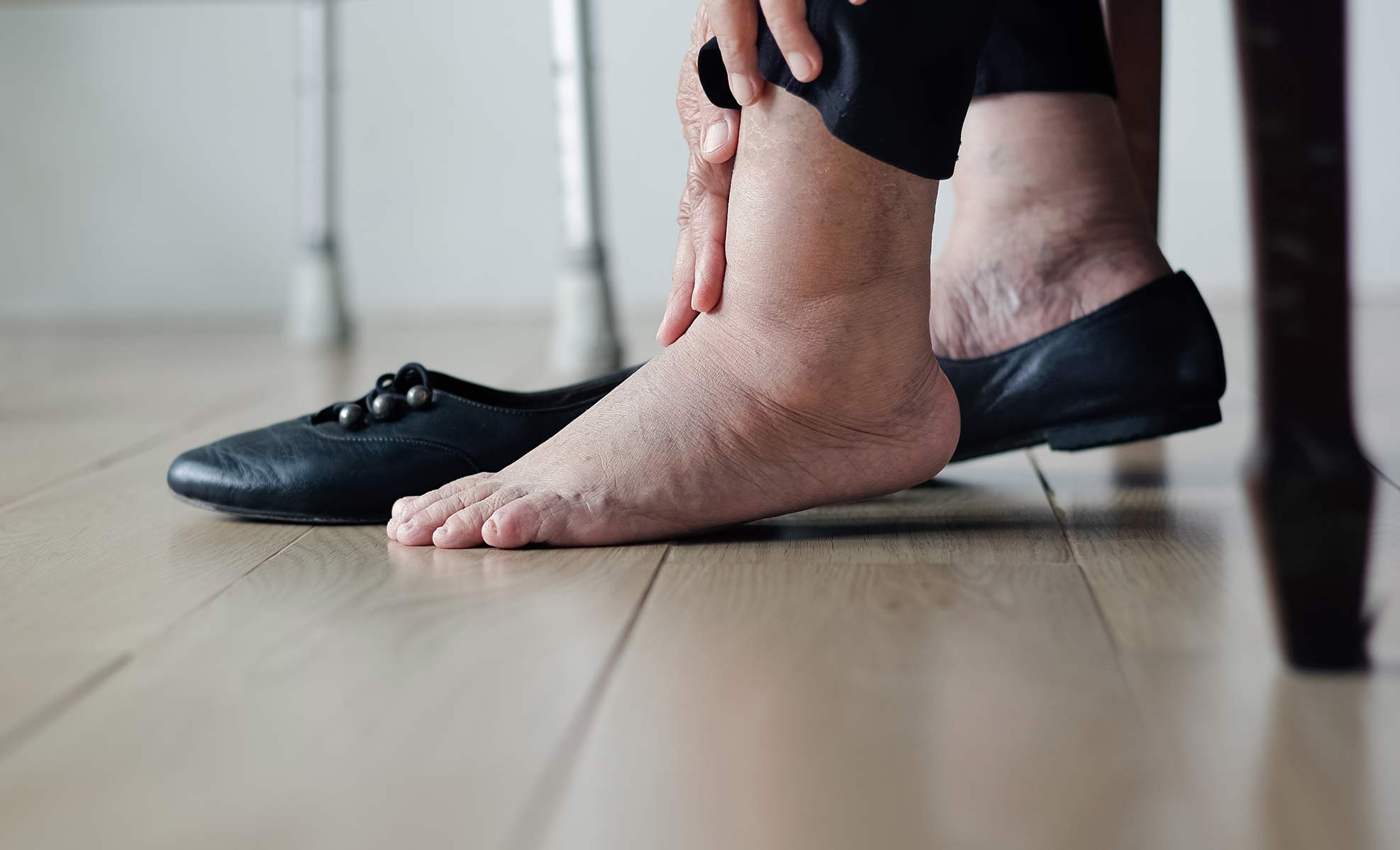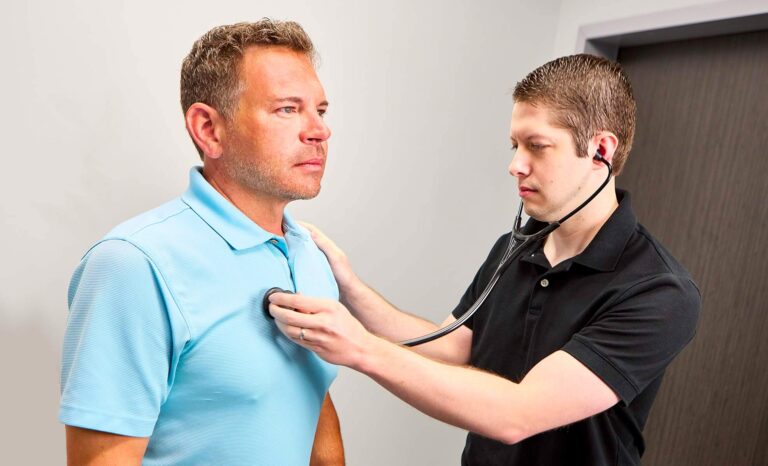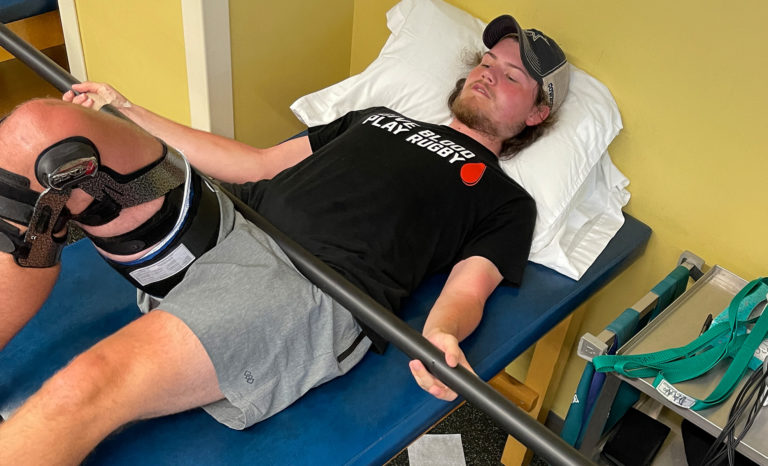A diabetes diagnosis can be overwhelming. You’re left with pamphlets, prescriptions and instructions explaining how your life is about to change.
 WJHL VIDEO: Arthur Belanger, DPM
WJHL VIDEO: Arthur Belanger, DPM
From overhauling your diet, to daily pokes, to check blood sugar levels or inject insulin, learning you have diabetes is also about learning how to manage your whole body. Know that you’re not alone. Diabetes has changed the lives of 13.8% of adults in Tennessee and 10.9% of adults in Virginia who have been diagnosed with the disease. Both of these statistics exceed the national average of 9% of adults who live with diabetes, which represents nearly 30 million people in the U.S. These numbers underscore the reason November is recognized each year as Diabetes Awareness Month: the long-term effects of elevated blood sugar can lead to serious damage to the eyes, heart, kidney, nerves, and even feet.
It’s sometimes easy to forget your feet in your diabetic care plan. But, because of the loss of feeling due to nerve damage caused by the disease, diabetics are at a higher risk for foot complications. This damage causes more than 100,000 limbs to be amputated yearly due to the complications of diabetes.
However, with proper diabetic foot care and visits with a podiatrist, a doctor who specializes in foot care, patients are 85% more likely to reduce limb amputation.
Your Feet Will Thank You
By keeping a regular schedule with a podiatrist, patients living with diabetes can decrease the chance of a hospital stay due to lower limb pain by 24%.
Adding a podiatrist to your diabetic care team will help you learn more about how to care for your feet and what signs and symptoms of trouble you need to watch for. Your podiatrist can teach you about the symptoms of peripheral neuropathy, also known as a numbness you might feel in your toes, feet, fingers, hands, and legs.
Ongoing nerve damage in your feet could ultimately cause you to lose the sensations of pain. This is most troublesome for patients who like to walk around without shoes. Your pain receptors can’t tell you if the pavement outside is too hot or too cold, leaving you open to otherwise easy-to-prevent foot injuries. As a diabetic, you’ll want to try to maintain an active lifestyle, so personal healthcare depends on the ability of your feet to keep your body moving.
With regular visits, a podiatrist also can monitor what your feet look like, feel like and if there are any red flags. In addition, the doctor will show you how to conduct your own personal exams on your feet.
It’s important to remember not to wait to see the doctor about foot pain. We rely heavily on the presence of pain to tell us when to see a doctor, but you could suffer extensive nerve damage if you wait to schedule your appointment until you feel something in your toes.

What to Watch For
If you have recently been diagnosed with diabetes, it’s important to be aware of how your feet can change during the course of the disease. You’ll want to watch for:
- Skin color changes on your feet
- Swelling of your feet or ankles
- Numbness in your feet or toes
- Pain in your legs
- Open sores on your feet that are slow to heal
- Ingrown and fungal toenails
- Bleeding corns and calluses
- Dry cracks in the skin, especially around your heels
Also keep an eye out for dramatic changes to your feet — like a sudden need to wear a new shoe size — which can be signs of other degenerative bone disorders. These disorders can change the size of your feet quickly, and because oftentimes diabetics can’t feel pain as prominently, the deformative effects can come on without a lot of warning.

Treat Your Feet Right
In addition to regular doctor’s visits, it’s important to provide daily self-care to your feet. Wash your feet every day and when you inspect them, you’ll want to know what you’re looking for. You might have to restock your sock drawer, but your home care routine is vital to keeping your feet healthy.
- Inspect your feet daily. Check for cuts, bruises, sores, or changes to the toenail, like discoloration or thickening.
- Wear thick, soft socks and avoid socks with seams that can rub or create blisters. There are some socks that are specially designed for people with diabetes.
- Exercise daily. Even walking for 30 minutes around your neighborhood can improve circulation and keep your weight under control. Be sure to wear an appropriate shoe that is the right fit. Wearing shoes that are too small or too big can create problems in stability.
- Don’t go barefoot! Even in your home. The risk of cuts and infection is too great for those with diabetes.
- Control your blood sugar. Reducing damage to your nerves is a good start toward reducing your chances for neuropathy.
- Never try to remove calluses, corns, or warts by yourself. Over the counter products can burn the skin and cause irreparable damage to the foot for people with diabetes.
- Stop smoking. High levels of nicotine can reduce the effectiveness of insulin and make blood sugars harder to manage.
- Regular checkups with a podiatrist – at least annually – are the best way to keep your feet healthy.
- Follow New Footsteps

Take that important first step towards caring for your feet and set up an appointment with a podiatrist in your area. Podiatrists at Holston Medical Group are specially trained to treat foot diseases that stem from diabetes-related concerns.
We have imaging centers within our labs that can pinpoint any foot-related issues. As your health partner for life, our hospital system can also help match you up with an endocrinologist, in case you are having other health concerns while controlling your diabetes.
To learn more about how to make foot care a daily part of managing your diabetes, contact your HMG primary care physician or one of our podiatric offices.










